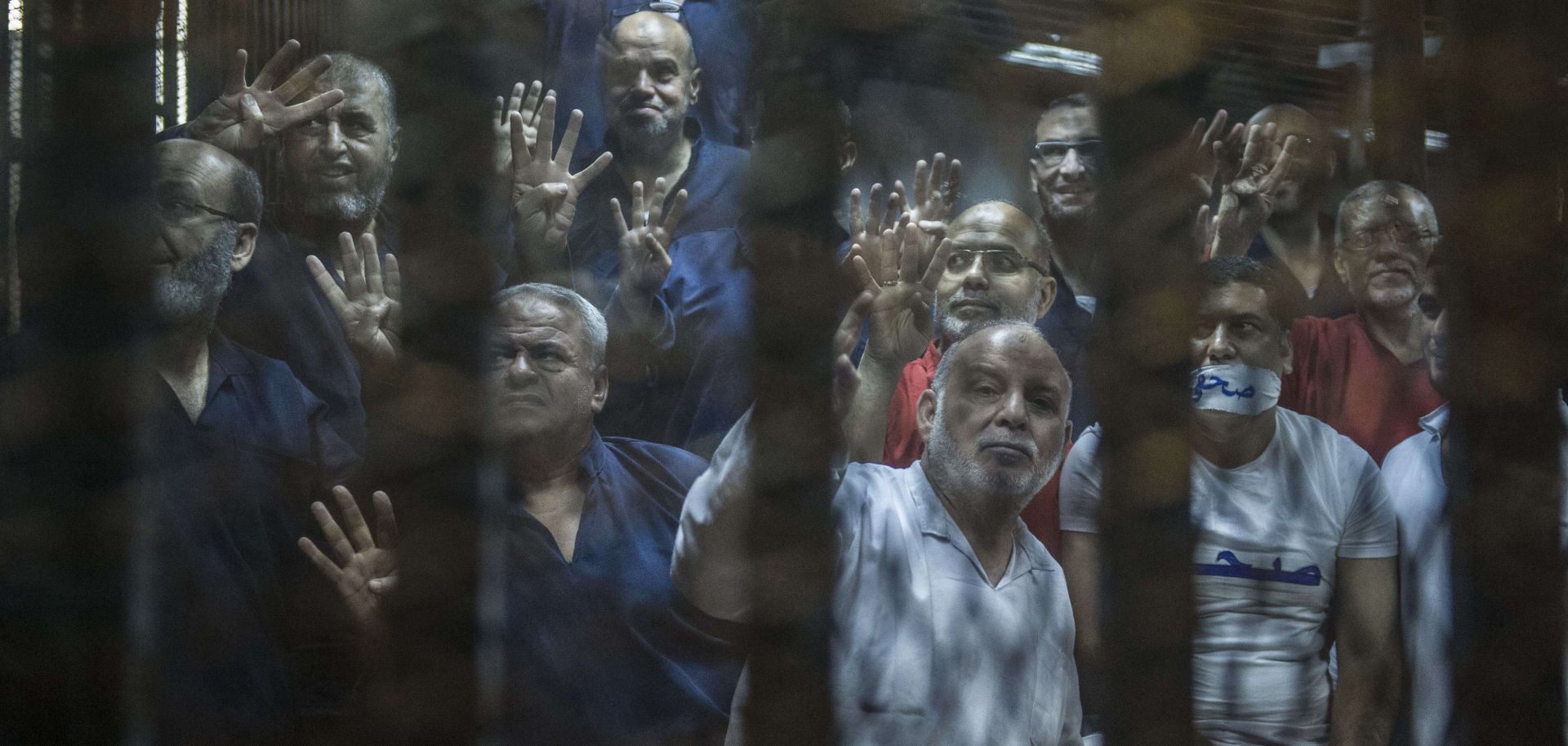ASSESSMENTS
Charting the Muslim Brotherhood's Influence
May 31, 2019 | 10:00 GMT

Egyptian Muslim Brotherhood senior members, including Khairat al-Shater (top left), gesture from the defendants' cage at the Egyptian Police Academy on the outskirts of Cairo on June 2, 2015. Their trial took place along with ousted Egyptian president Mohamed Morsi (unseen). Morsi was sentenced to death along with dozens more over a mass jailbreak during the 2011 Arab Spring uprising.
(KHALED DESOUKI/AFP/Getty Images)
Subscribe Now
SubscribeAlready have an account?


